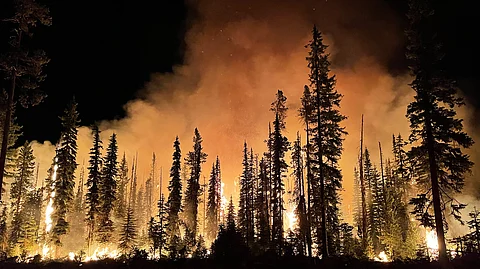The overall youth mental health crisis, which has been characterised by an increase in despair, loneliness, and suicide over the past ten years, although there are new indications that it may be it may be improving slightly, Assaf believes fear about climate change connects with this issue.
A 2022 Harris Poll of 1,500 U.S. teenagers found that 89% of them regularly think about the environment, “with the majority feeling more worried than hopeful.” Furthermore, 69% of respondents expressed concern that they and their family would soon be impacted by climate change. Additionally, 82% of respondents stated that they anticipated having to depend important life decisions, such as where to reside and whether to have children, on the state of the environment.


